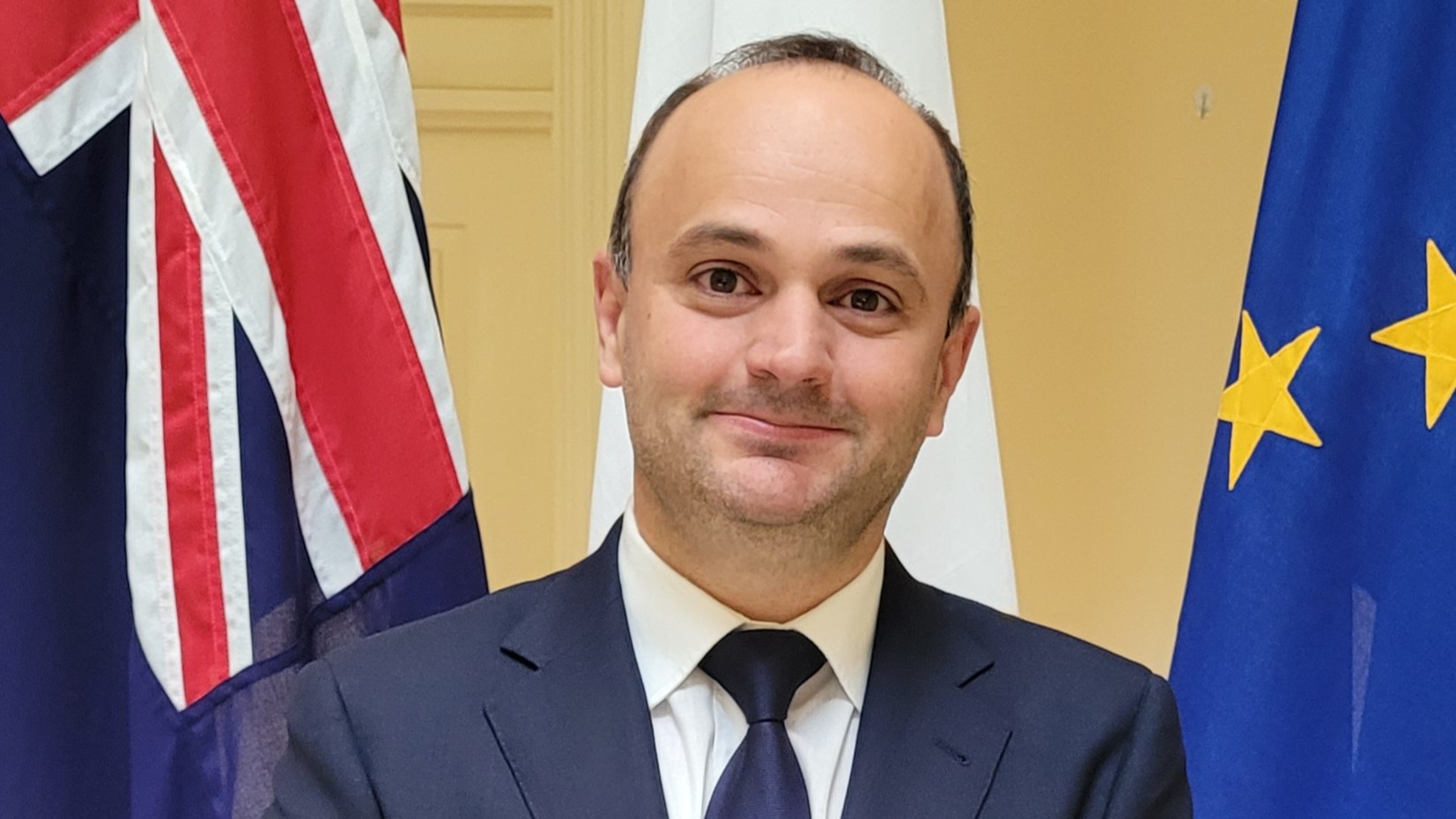The High Commissioner of the Republic of Cyprus in Australia, Antonis Sammoutis, has only been in the country for less than six months but he’s definitely hit the ground running.
From attending the Melbourne launch of Professor Anastasios Tamis’ book on the history of the Cypriot diaspora in Australia, to enjoying festivities at the Cyprus Community of NSW’s Cypriot Food and Wine Festival, Mr Sammoutis has become fully immersed in the local Cypriot culture.
The Greek Herald sat down with Mr Sammoutis to ask about his thoughts on these Cypriot Australian communities, as well as his plans to celebrate the 50th anniversary of bilateral relations between Cyprus and Australia this year.
What has been your impression of Australia so far?
Australia has been fascinating. Far greener than we’re used to in Cyprus. The flora and fauna, the people, everything. It’s an amazing place and now I see the reason why so many Greeks moved here. Of course, when it comes to our diaspora, we’re very proud of you and all you have achieved here – how committed you are and how you don’t forget the places you came from.
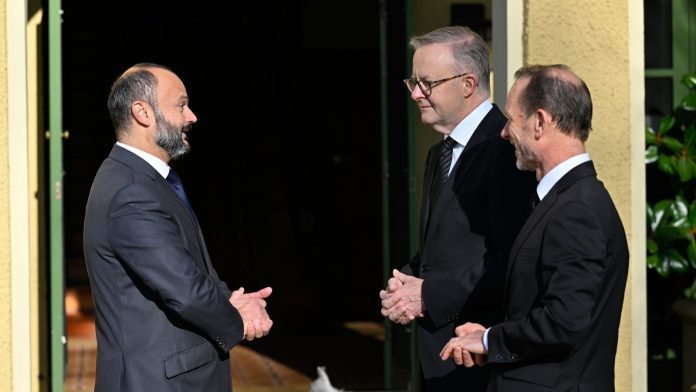
This year marks 50 years of bilateral relations between Cyprus and Australia. How would you describe the current relationship between both countries?
The first Cypriots came to Australia over 100 years ago so our relations go back to the period before the establishment of the Republic of Cyprus. But especially after the establishment, with the exchange of ambassadors, our relations became formal and ever since it has been a strong one with high level visits. Traditionally, every year, we have a minister from Cyprus visit and especially this year, we are trying to hold cultural events to remind us of this very, very important milestone.
It’s very interesting to see that out strongest bond is indeed the Cyprus community here in Australia.
What events are planned to celebrate the 50th anniversary of bilateral relations between Cyprus and Australia?
The first thing we are trying to organise is the State Theatre of Cyprus presenting an old Greek comedy in Australia. We’re trying to get this organised in May in three or four major Australian cities. This is huge for us because it’s the first time the State Theatre of Cyprus will come to Australia with a large group of actors and actresses.
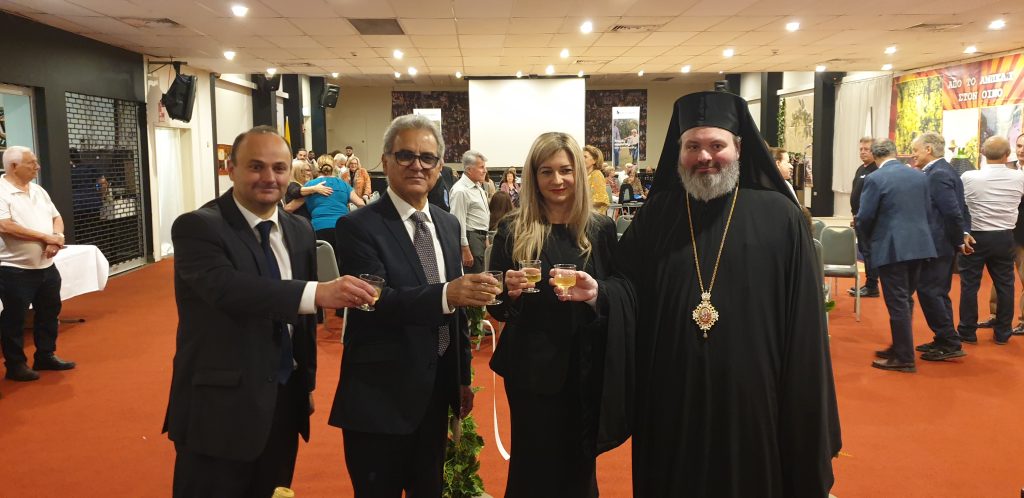
At the end of last year, we also had a presentation of a book [by Professor Anastasios Tamis] about the Cypriots in Australia and we’re trying to promote this book.
We’re also in contact with various Cypriot Australian artists that could help us organise exhibitions and some other cultural events. Of course, Cypriot communities across Australia are also working on their own events.
In your diplomatic role, how will you work with the Federal Government to continue strengthening bilateral relations between Cyprus and Australia?
After the accession of Cyprus to the European Union we have new opportunities, especially when it comes to the framework of cooperation – the new framework between the EU and Australia – which also concerns Cyprus as a member state.
We are looking forward to the Free Trade Agreement between Australia and the EU countries, including Cyprus, and we also look forward to starting negotiations on a new Double Taxation Agreement between Cyprus and Australia.
Of course, we’ll never forget the contribution of Australia to the efforts to solve the Cyprus issue – the continuous presence of Australian officers in the United Nations force in Cyprus; the continuous interest of the Australian Government in the situation because things have become more complicated in the last few years when it comes to the Eastern Mediterranean.
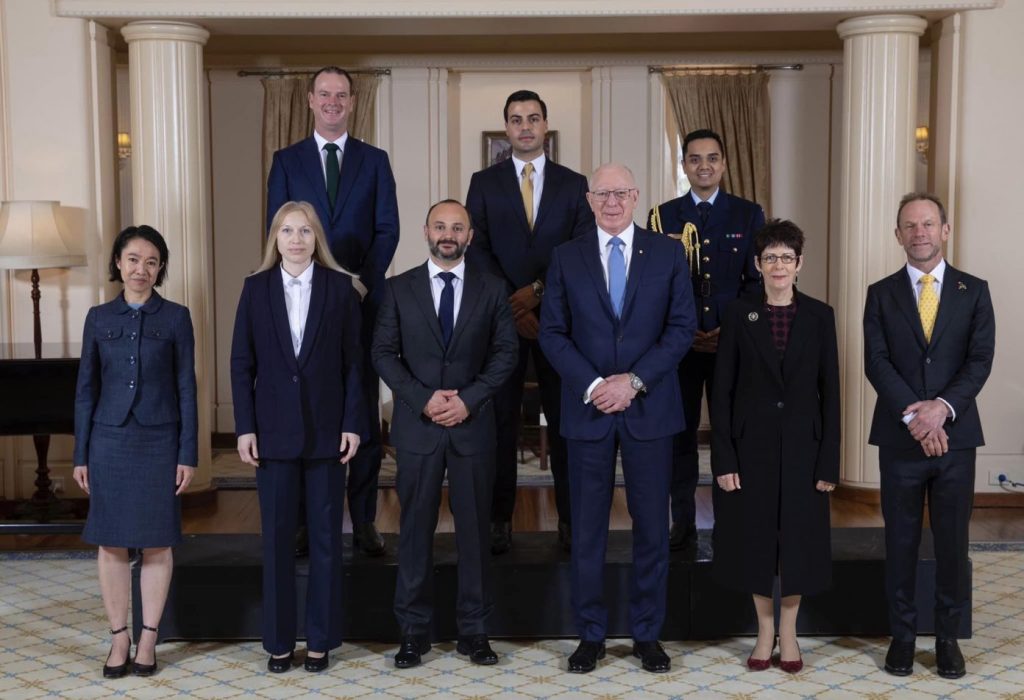
You mentioned the double taxation agreement and new trade talks. What is the latest with these two issues?
The Double Taxation Agreement will be delayed a while because the negotiations will only start in 2024 – the second half of 2024. But I really hope they will be concluded promptly. It’s good to have speedy negotiations on that because it’s really important for Cypriots who want to do business here or Australians who want to do business in Cyprus. Of course, it’s related to the Free Trade Agreement. There are some aspects of that agreement that really touch upon taxation and services.
We really think that the Free Trade Agreement will boost trade ties [between Australia and Cyprus]. Starting with the communities here, I think we have good allies to spread some of our products. But I think there is room for many more products to come from Cyprus.
What are your thoughts on the Cyprus issue?
Unfortunately, the latest developments [with the Cyprus issue] are not so encouraging because we’ve seen over the last few years, after the collapse of negotiations in 2017, a new approach from Turkish side – the approach of a two-state solution – which is contrary to the UN Security Council resolutions.
The situation on the ground isn’t any better. We have new attempts from the Turkish side to open the fenced area of Famagusta. The fenced area of Famagusta, which is now uninhabited, was supposed to go back to the owners of the properties, to the refugees, even before the start of negotiations. Instead of that we see that recently there was an announcement the Turkish side is going to build houses right next to the buffer zone and probably the houses will be for settlers from Turkey. These are actions that aim to enhance the division of Cyprus, not enhance efforts for unification.
Unfortunately, we see that the very strong Turkish position on the Cyprus issue, which is the two-state solution, makes the beginning of new negotiations impossible. Our biggest worry is that time passes and works against everybody and especially against us in this case.
We will see how the UN Secretary General will handle this issue and we’ll see how the international community, including Australia, will encourage the Turkish side to engage in new negotiations to achieve a viable solution.
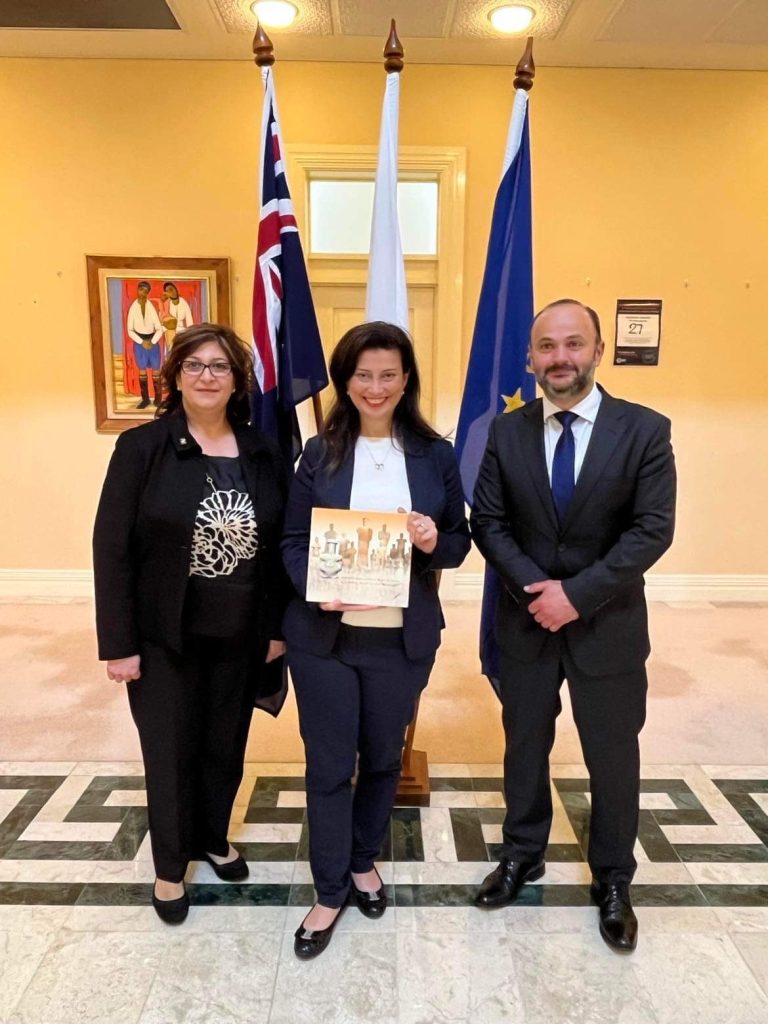
What role can the Cypriot diaspora in Australia play to bring more attention to this issue?
We understand that Australia talks to all its partners, and to Turkey, to give the message that we need to do something. The situation on the ground is not sustainable. Even the two-state solution that Turkey proposes will only create new problems on the island.
We welcome the continuous presence of Australia in the UN force in Cyprus, as well as the engagement of Australia with the Security Council of the UN, and the engagement of the Australian Parliament with the support of specific motions.
We also have a Turkish Cypriot community in Australia, being part of this country and living together with the Greek Cypriot community. To my understanding, they get along very well. So we think even these communities could encourage the leaders in Cyprus to work together instead of working against each other.
Do you have a final message for the Cypriots and Greeks of Australia?
Keep up the good work! My strongest message is ‘travel back to Cyprus.’ Get to know Cyprus. And, of course, for the younger generation my strongest message is to invest in the language. It will bring a lot of joy because every language you learn opens up a whole new world.

